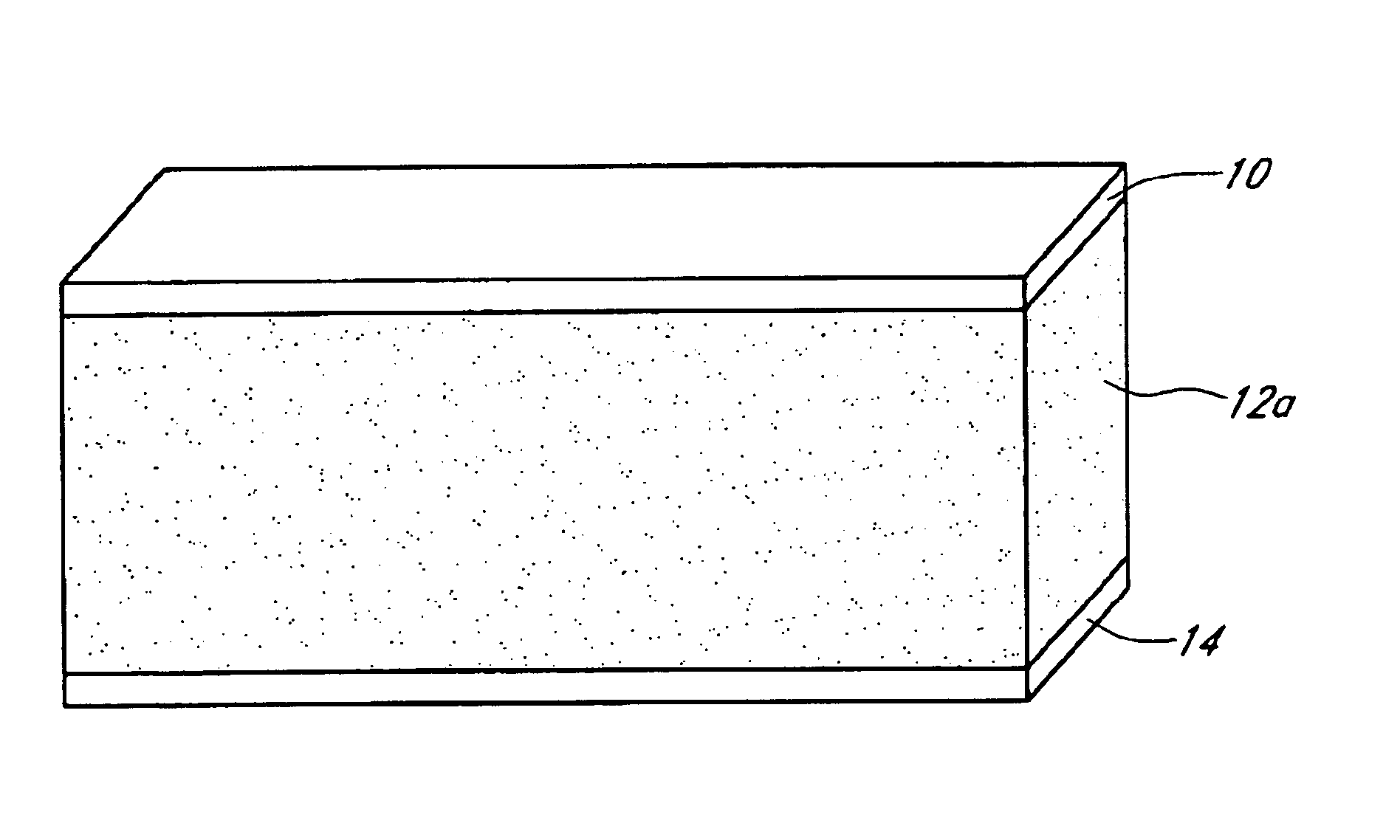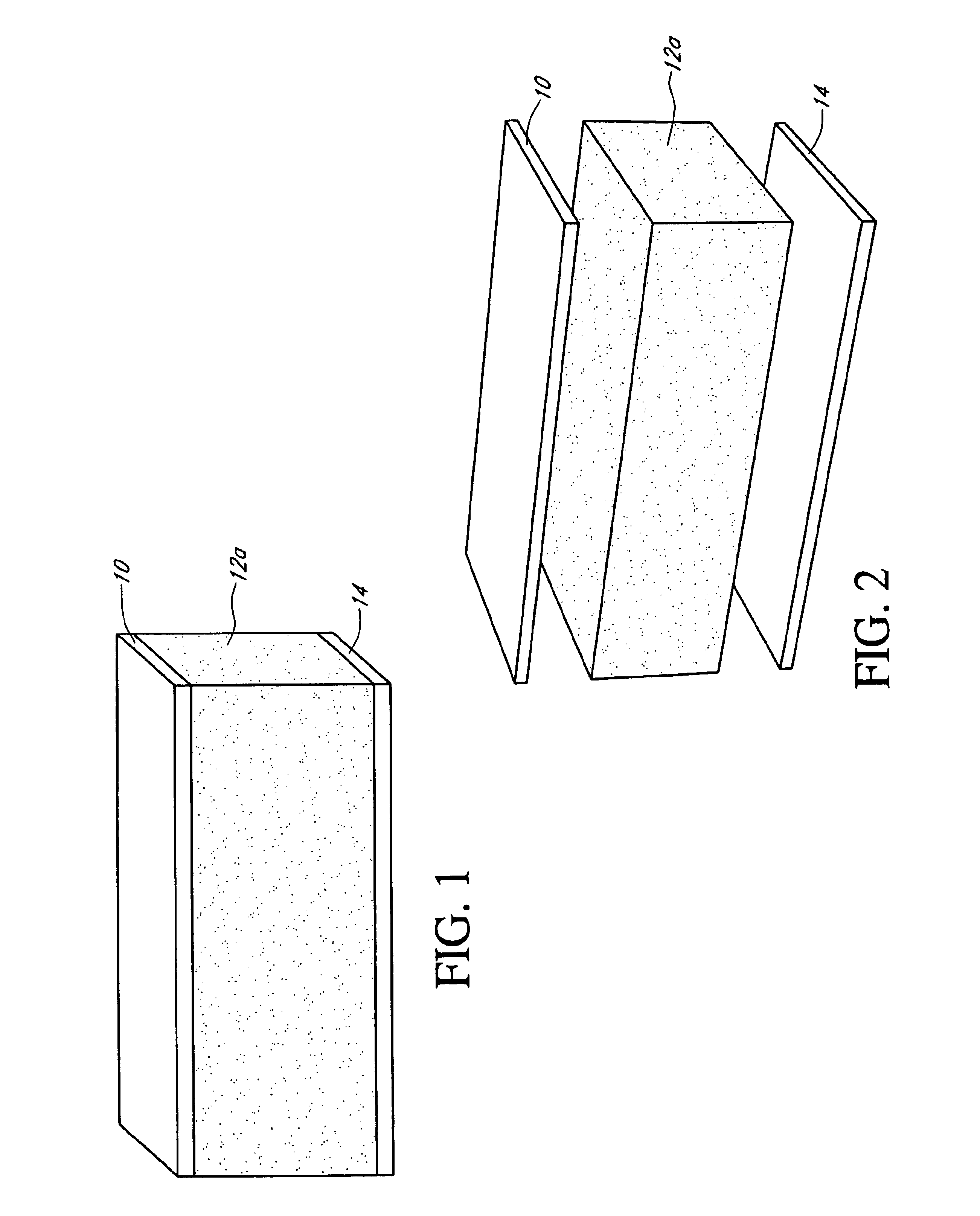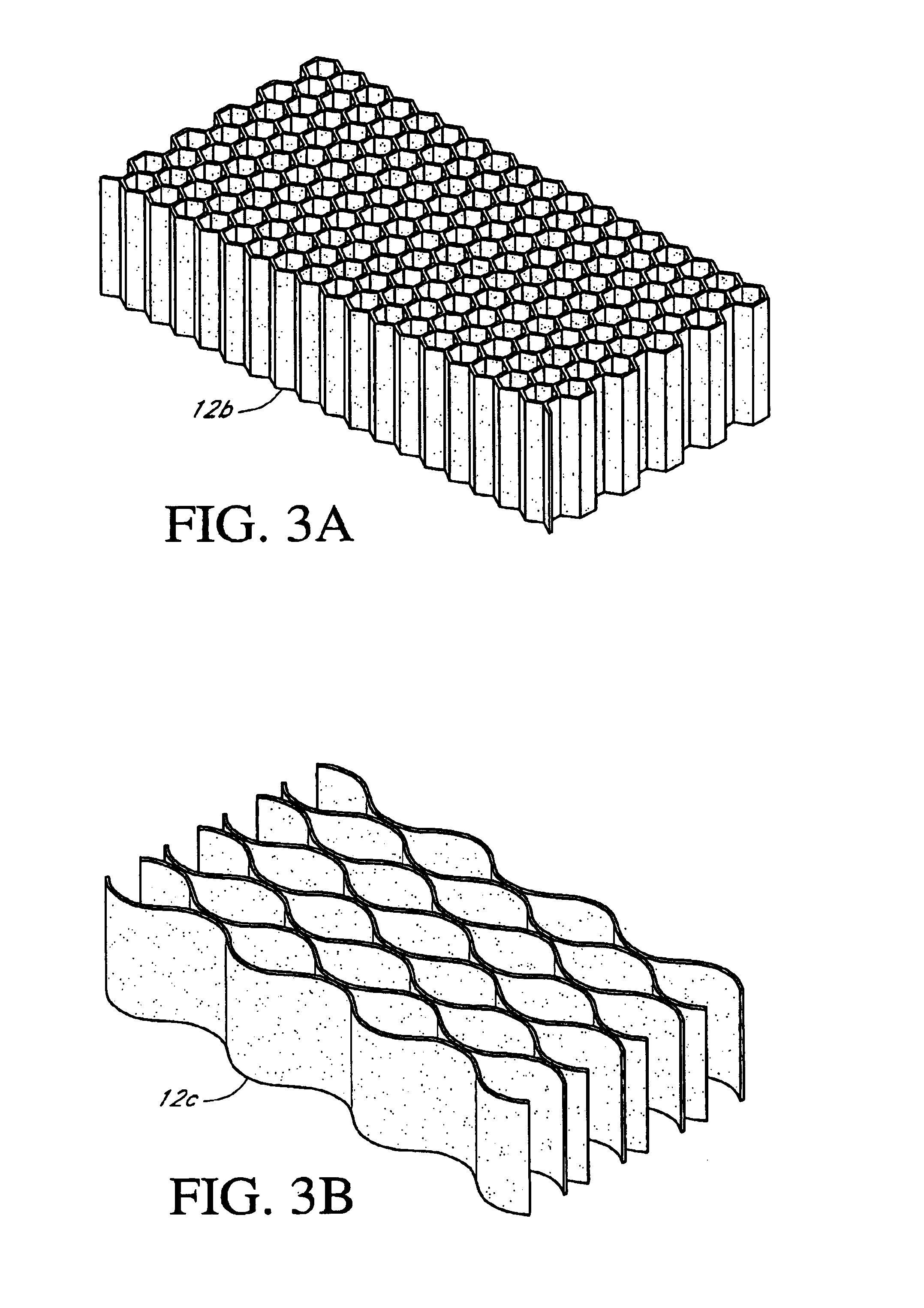Composite building material
a building material and composite technology, applied in the field of composite building materials, can solve the problems of local weather conditions on the outside surface of fiber cement products, stress, etc., and achieve the effects of reducing noise transmission, low acoustic transmission, and high acoustic absorption
- Summary
- Abstract
- Description
- Claims
- Application Information
AI Technical Summary
Benefits of technology
Problems solved by technology
Method used
Image
Examples
Embodiment Construction
1. Composite Structure and Composition
[0029]A preferred embodiment of the composite building material is shown in FIG. 1. The composite is preferably comprised of a lightweight core (12a), a fiber cement outer layer, skin or facing (10), and a second outer layer, skin or facing material (14). As used herein, the terms skin, facing, or outer layer are interchangeable. It will be appreciated that the use of facings and a core to form a composite is only one embodiment of the present invention, and thus, other building materials can be provided incorporating the concepts described herein without being limited to a core having a facing on one or both sides thereof.
[0030]The lightweight core in one embodiment is comprised of a hydraulic cementitious binder, fillers, fiber, and foam and / or lightweight additives, as described further below. The fiber cement facing material (10) in one embodiment is comprised of hydraulic cementitious binder, filler, fiber, and additives. The second facing ...
PUM
| Property | Measurement | Unit |
|---|---|---|
| Density | aaaaa | aaaaa |
| Pressure | aaaaa | aaaaa |
| Pressure | aaaaa | aaaaa |
Abstract
Description
Claims
Application Information
 Login to View More
Login to View More - R&D
- Intellectual Property
- Life Sciences
- Materials
- Tech Scout
- Unparalleled Data Quality
- Higher Quality Content
- 60% Fewer Hallucinations
Browse by: Latest US Patents, China's latest patents, Technical Efficacy Thesaurus, Application Domain, Technology Topic, Popular Technical Reports.
© 2025 PatSnap. All rights reserved.Legal|Privacy policy|Modern Slavery Act Transparency Statement|Sitemap|About US| Contact US: help@patsnap.com



